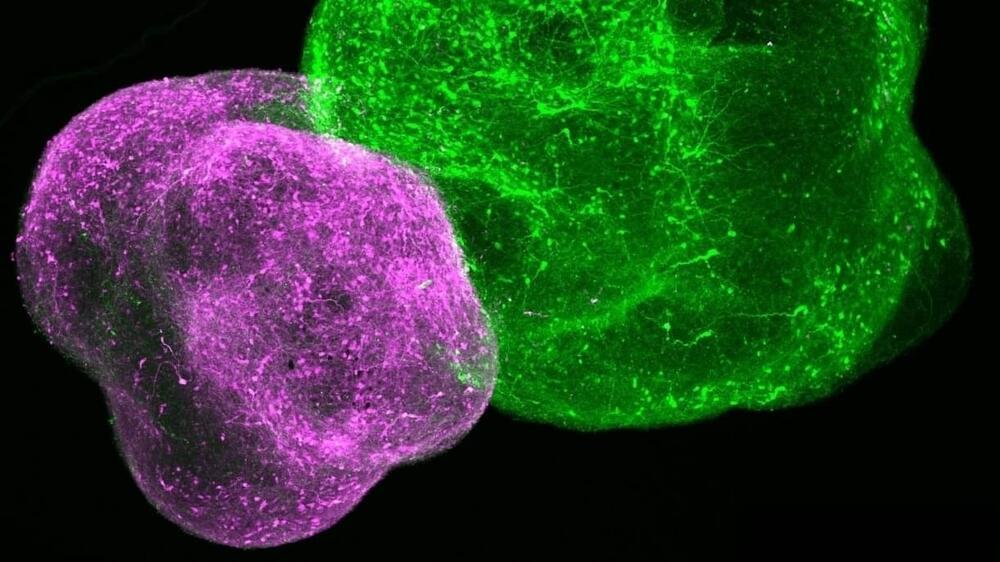AbstractThis talk will delve into the intricate web of space radiation, focusing on its three primary components – galactic cosmic rays, solar energetic part…
Get the latest international news and world events from around the world.

At the Edge of Explosion: How New Science Is Making Old Reactions Safer
The chemical industry has been using a reaction with explosive chemicals for over 100 years — now Mülheim scientists have discovered a safer alternative.
Explosions and poisoning. Serious injuries and even deaths. In the history of the chemical industry, there have been repeated accidents, sometimes fatal, often caused by dangerous and explosive chemicals that are required for certain reactions.
Aryldiazonium salts, which have been used for 140 years, are such chemicals. They are very reactive and therefore extremely useful for producing other compounds – dyes, for example. However, the high reactivity means that isolated aryldiazonium salts are not very stable and can therefore react unintentionally and sometimes explosively. On December 23, 1969, there was a particularly serious explosion involving these chemicals at Ciba AG in Basel. A building was destroyed and heavy pieces of the reactor flew through the air. Three workers lost their lives and 31 were seriously injured. Despite such horrific reports, work continues with aryldiazonium salts.

Quantum Leap: How a New Experiment Could Solve Gravity’s Biggest Mystery
A proposed experiment shows that quantum entanglement is not the only way to test whether gravity has a quantum nature.
Gravity is part of our everyday life. Still, the gravitational force remains mysterious: to this day we do not understand whether its ultimate nature is geometrical, as Einstein envisaged, or governed by the laws of quantum mechanics. Until now, all experimental proposals to answer this question have relied on creating the quantum phenomenon of entanglement between heavy, macroscopic masses. But the heavier an object is, the more it tends to shed its quantum features and become ‘classical’, making it incredibly challenging to make a heavy mass behave as a quantum particle. In a study published in Physical Review X, researchers from Amsterdam and Ulm propose an experiment that circumvents these issues.
Classical or Quantum?

Intense Solar Flare Captured by NASA’s Solar Dynamics Observatory
The Sun emitted a strong solar flare, peaking at 10:22 p.m. ET on May 2, 2024. NASA ’s Solar Dynamics Observatory, which watches the Sun constantly, captured an image of the event.
Solar flares are intense bursts of radiation emanating from the release of magnetic energy associated with sunspots. These flares are among the biggest explosive events in our solar system, visible primarily in the ultraviolet range.
Flares impact Earth in a variety of ways: they can disrupt the ionosphere and interfere with GPS navigation and radio communications. They are also responsible for auroras, the beautiful natural light displays often seen in high-latitude skies.

Over 1,000 Qubits Achieved — Physicists Set World Record for Atom-Based Quantum Computers
Scaling up quantum systems is essential for advancing quantum computing, as their benefits become more apparent with larger systems. Researchers at TU Darmstadt have made significant progress in achieving this goal. The results of their research have now been published in the prestigious journal Optica.
Quantum processors based on two-dimensional arrays of optical tweezers, which are created using focussed laser beams, are one of the most promising technologies for developing quantum computing and simulation that will enable highly beneficial applications in the future. A diverse range of applications from drug development through to optimizing traffic flows will benefit from this technology.




Scientists restore brain cells impaired by a rare genetic disorder
Scientists have found a way to restore brain cells impaired by a rare and life-threatening genetic disorder called Timothy syndrome.
A type of drug known as an antisense oligonucleotide allowed clusters of human neurons to develop normally even though they carried the mutation responsible for…
A therapy that restores brain cells impaired by a rare genetic disorder may offer a strategy for treating conditions like autism, epilepsy, and schizophrenia.
